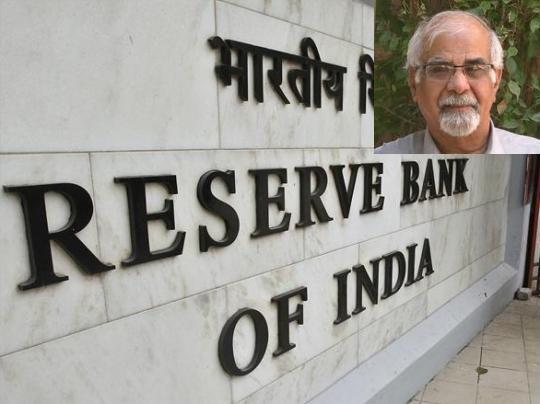
When I walk into Threesixty Degrees at the Oberoi, I ask Surjit Bhalla where he wants to sit - somewhere quiet, perhaps, since the restaurant is full and noisy? He doesn't care.
Which is not surprising, because he's never had any trouble making himself heard in a crowd, whether intellectual or otherwise, writes Mihir S Sharma.
Bhalla, who runs the investment firm Oxus and is an economic policy analyst who is frequently described as a contrarian, a maverick, or a genius, depending on who's doing the describing, has always expressed himself forcefully, and always for freer markets.
He starts as he means to go on: we have barely waved away the menu and decided to help ourselves to the buffet - spread out on a series of tables in two rooms - when Bhalla fixes me with a familiar eagle-like glare, and begins to scold me.
"You guys," he says, "have been too kind to the Reserve Bank." I presume he means economic journalists in general, till he disabuses me of that notion by adding, waving a napkin for emphasis: "especially your paper".
...
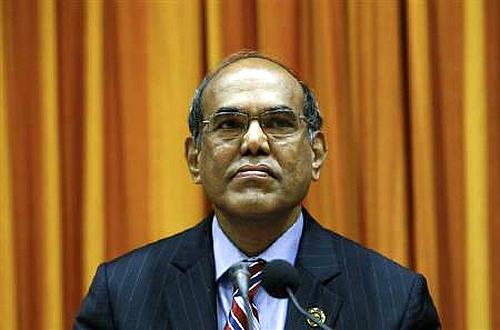
"This is a central bank," he says, "that goes around changing the goalposts in the middle - which central bank changes them? It's actually embarrassing how bad it is."
I murmur something about emergencies, the current account deficit - but he cuts me off: "There is no policy maker in the world who has targeted monetary policy on the basis of the current account deficit. Name one."
He expounds on that, and says he's working on some research that examines, using the Taylor Rule, which central banks have done well and which done poorly in meeting their goals. His conclusion? "By far the worst central bank in the world in 2011 was the RBI."
The Taylor Rule worries me, and I tell him so, because by some formulations it requires you to have an opinion about average, or potential growth. But that's controversial now. Is our potential growth rate still 8 per cent? Or now 6.5 per cent?
Perhaps 2003-2008 was a special period... I stutter to a stop, because Bhalla has growled something under his breath. "No," he waves me on, "finish it, and I'll opine."
...
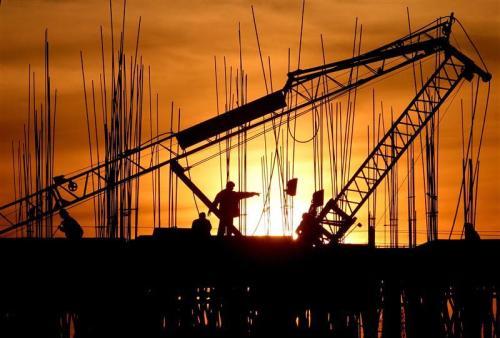
I finish my argument as best I'm able - that the pre-crisis high growth came on the back of artificially reduced input costs, with cheap foreign capital and cheap coal and cheap land, and when all these inputs are priced properly, our actual growth will have to be lower, at around 6.5 per cent. What's his answer to this claim?
"Short answer?" asks Bhalla. I accept. He tells me his short answer. It is unprintable. I ask for a longer answer.
He does a little back of the envelope mathematics using the basic model of economic growth: "Our stock of capital is growing at 8 per cent. Our elasticity of output with respect to capital is 0.6 - multiply those two, it gives us 4.8. Similarly, labour growth gives you another 0.8; add another couple of percentage points from productivity growth. You get to 8 per cent plus without any assumptions at all. So what is this nonsense?"
"This is the criminality of this government", he adds, that people are questioning India's growth potential. All this, ...
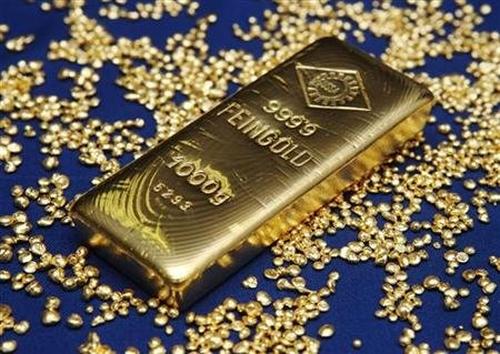
As we do, he says believing notions like that is a typically Indian problem. "No proof required in this country, ever. Nobody asks for evidence."
Loaded up with salads and sushi, we return, talking about gold. He is still angry about the possibility that anyone would make monetary policy with one eye on the current account deficit. "This is a bubble, and we shouldn't be basing macro policy on a bubble. This is band-aid economics."
He pauses here, and meditatively chews on his salad for a bit. "The real puzzle", he says, more calmly, "is the export fall-off."
I perk up. We're getting close to the subject of his new Oxford University Press book, Devaluing to Prosperity, on managing currencies, exports and growth.
I mention that some people suggest India needs a 21st century industrial policy now, government support for "winning" sectors, to revive manufacturing and exports. I can see his calm evaporating as quickly as it arrived, but I persist.
After all, I point out, wasn't Korea's export boom, the foundation of its current wealth, a creation of conscious government choice?
...

"Do you know," he replies, "that in 1987, Korea was labelled a currency manipulator by the US? What do you think was happening there? Nobody looks at the data in India. Now they are saying China, this is the supermodel - gee, they pick the winners! With their currency so devalued? First reject the competing explanations before you conclude something, no?"
I point out that China's exports are recovering, even though it has substantially revalued its currency since 2005. He agrees - but only to an extent.
"The IMF, when Raghu [Rajan] was there, started making a noise in 2005 about China's currency, and so it had to start revaluing. Since then the nominal rate has appreciated, say around 20 per cent. That looks like a 20 per cent real appreciation compared to the dollar, because there's no difference in inflation between China and the US."
But, he adds, China's productivity growth has been much higher than the US, which should also change the comparison: "So net-net it's the same as before," he says, concluding another lightning-fast back-of the-envelope calculation.
...
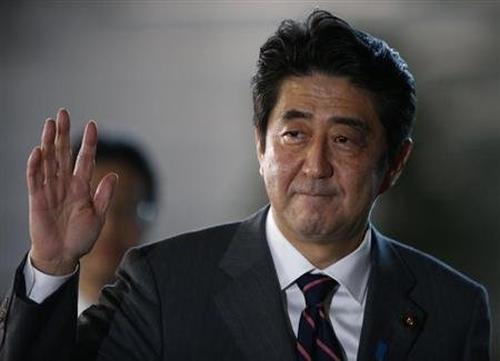
He insists he believes in disprovable forecasts. "Sometime someone must give me credit for what Shinzo Abe is doing in Japan. It is exactly as forecast in this book."
He adds that, as China's investment declines as a fraction of its output, the exchange rate will appreciate, and growth will go down.
"If it doesn't happen, we can meet two years from now, and say burn this book, all the forecasts are wrong."
As I return to the table, having got myself grilled chicken - Bhalla has gone straight to the dessert - he says that this seriousness about the problems means he is quite optimistic about the world.
"Aren't you always optimistic? When have you ever been pessimistic," I ask, not expecting an answer. Quick as a flash, I get one: "About India? This last Budget. But I have recovered."
...
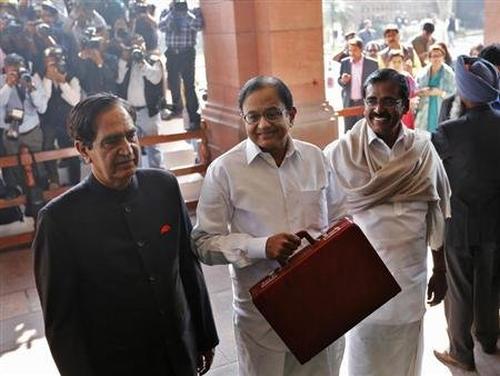
What got him about the Budget, I ask. "Several small things," he says, pauses, and then snaps: "If you want to know what really got me, it was that women's bank. Chidambaram is playing to the gallery. He is playing to Sonia. God knows why. It just doesn't make any sense whatsoever. Does he think she is that stupid? First a women's bank. Then why not an SC bank? ST bank? Islamic bank?"
Looking around worriedly, I urge him not to say this out loud in the Oberoi, or it might go into someone's manifesto.
In fact, I make a very Bhalla-esque prediction: a small bet with him that there will be a SC bank in the next 10 years, or that SBI will be made to set up Islamic banking accounts.
He laughs. "Ek Sikh bank bhi kar lo, yaar," he says. I refuse: "You guys don't need it."
But Bhalla is not to be diverted. "Frankly," he says, "an SC bank would actually have got more votes."
...
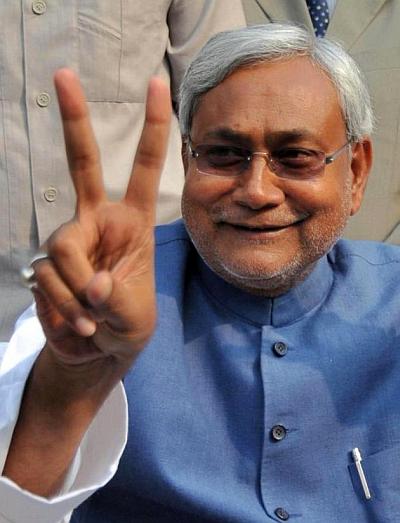
He also has a problem with the Budget's numbers. "No way nominal GDP is going to grow at 13.4 per cent. And the reason is inflation is going to collapse. By which I mean go down to around 5 per cent. But you still announce a 16 per cent growth in expenditure. And that's funded by a 19 per cent increase in revenue - which is a function of both real growth and nominal growth, but you're not going to get either of those two! On everything it's a tad optimistic. On expenditure. On growth. On RBI action. Not widely off but add it all up and it is. What offends me, what hurts me the most, is that we are being told we are stupid, we are donkeys. It is depressing. It's a modern age, don't pull this nonsense - we have had a terrible rape, so here, take this women's bank."
But soon he's back to being optimistic again. He points out, while we walk out, that it might be a Chidambaram versus Modi/Nitish Kumar battle.
"One way or the other, we will have a nice election. If the worst-case scenario is Nitish for prime minister, should we worry? After all, one way of looking at it, that would be the best case!"